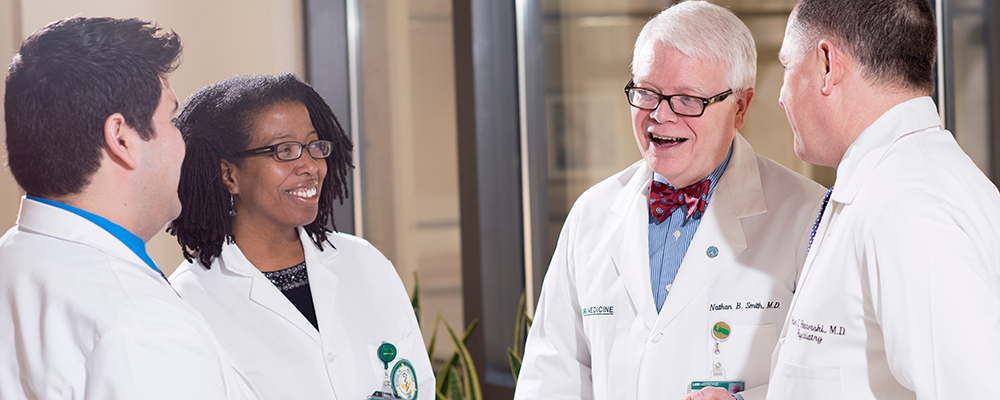
The nationally ranked Heersink School of Medicine at UAB is dedicated to the education of physicians and scientists in all of the disciplines of medicine and biomedical investigation for careers in practice, teaching and research.
To this end, the Department of Psychiatry and Behavioral Neurobiology has a comprehensive approach to teaching that includes medical education, research and patient care.
The psychiatry training programs including psychiatry residency and psychology internship programs, specialty fellowship programs, and post-doctoral research fellowships, attract talented individuals who are among the most sought after applicants in the country. We maintain a healthy balance between fostering future academic leaders and developing researched focused clinical investigators, as well as primary clinically focused psychiatrists and psychologists for the state and region.
A primary goal of the general psychiatry residency program is excellence in the training of psychiatric residents and fellows. Our program offers a variety of clinical rotations with closely supervised experiences in all major treatment modalities. Psychiatry residents will develop the knowledge, skills, and attitudes to ensure competence in the six Accreditation Council of Graduate Medical Education General Competencies: Patient Care, Medical Knowledge, Interpersonal and Communication Skills, Practice-Based Learning, Professionalism, and Systems-Based Care. Additionally, prior to completion of the residency, psychiatry residents will be competent in five psychotherapies: Psychodynamic, Cognitive-Behavioral, Supportive, Brief, and Combined Therapy. Our efforts focus on ensuring each resident will practice competent, state-of-the-art, modern psychiatry after graduation.
The department offers several sub-specialty programs for advanced training in a specific area of psychiatry. These sub-specialty programs include a two year residency in child and adolescent psychiatry and a one year residency in geriatric psychiatry, a one year fellowship in geriatric psychiatry and a one year fellowship in psychosomatic medicine.
Traditionally, the child and adolescent psychiatry program follows the PGY-III or PGY-IV training years in general psychiatry. .
The central objective of the geriatric psychiatry subspecialty is to assure competency in geriatric psychiatry through structured learning comprised of didactic, clinical, and research experience. The program is coordinated with those of consultation/liaison and general adult psychiatry, both of which provide a full range of psychiatric care. Experience with long term care populations through a public-academic affiliation is also in place. A significant portion of the training can occur in a public psychiatry setting by special arrangement. Consultation is also made with geriatric medicine, the Center for Aging, and other community agencies, as appropriate.
The principle goal of the UAB Psychosomatic Fellowship Program is to prepare psychiatrist in the specialty of psychosomatic medicine to function at the highest level of excellence in providing knowledgeable and compassionate psychiatric consultative service to physicians providing care to patients with psychiatric problems comorbid with medical, surgical, and obstetric conditions and, when applicable, to provide direct care to these patients as part of the multidisciplinary team providing their overall care.
Psychology training includes both internship and post-doctoral fellowship opportunities. Beginning in 1965, the UASOM Department of Psychiatry initiated a pre-doctoral clinical psychology internship. Since that time, the internship has been continuously accredited by the American Psychological Association, first as an independent program, later as a training consortium, and again as an independent program. The program presently offers five internship options with hopes of expansion in the future.